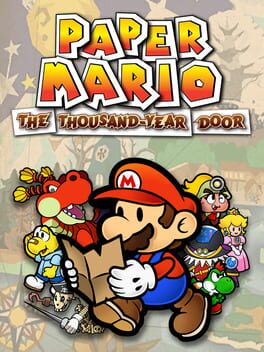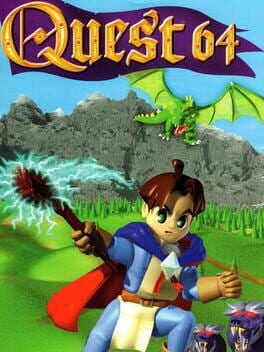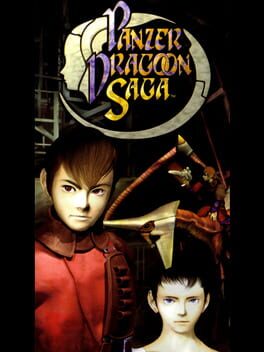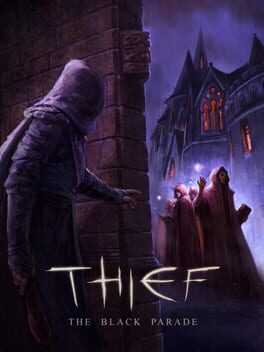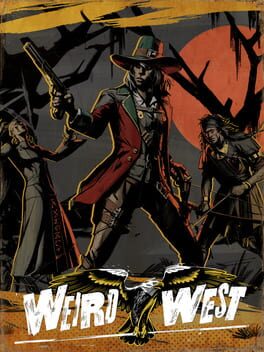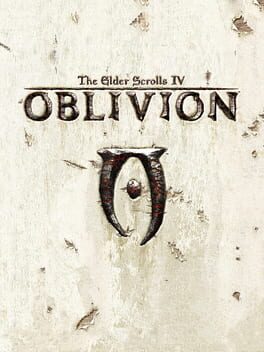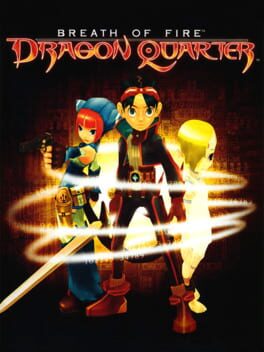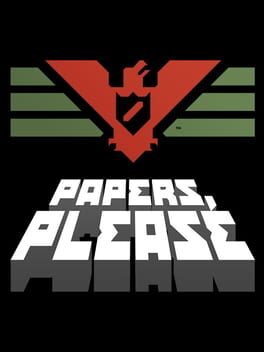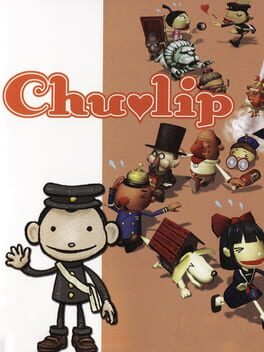MidnightTV
53 reviews liked by MidnightTV
Revisiting this almost 20 years later from when I first played it as a kid, and I'll be honest?
Ain't vibin' with this one, chief.
The soundtrack and visuals are top notch, and the battle system is genuinely more engaging than the first game. However, the writing feels VERY early 2000s with a lot of one-off gimmick characters who don't add much to overall plot. Also the very stale progression of going to point A to point B, backtracking to A to go to point C is pretty grating for me.
It's a neat game if you don't mind a lot of surface level style, but I prefer something with a little more meat to it or understanding that keeping things simple is sometimes just better. I'll stick to the original Paper Mario and that's perfectly fine with me.
Ain't vibin' with this one, chief.
The soundtrack and visuals are top notch, and the battle system is genuinely more engaging than the first game. However, the writing feels VERY early 2000s with a lot of one-off gimmick characters who don't add much to overall plot. Also the very stale progression of going to point A to point B, backtracking to A to go to point C is pretty grating for me.
It's a neat game if you don't mind a lot of surface level style, but I prefer something with a little more meat to it or understanding that keeping things simple is sometimes just better. I'll stick to the original Paper Mario and that's perfectly fine with me.
Quest 64
1998
Imagineer coined a uniquely minimal (level-less, item-limited, currency-less and party-less) form of JRPG with Quest 64, whose light storytelling, vast 3D areas and day/night cycles brought them closer to computer-RPGs than to its console-born siblings. What is undoubtedly CRPG-like - however, is their flexible upgrade system. Stat-leveling in the vein of FFII (i.e. earned from various parts of combat) is joined by collectible skill points distributed between 4 elements (which unlock new spells of that type and increase their power). Their combinations - from balanced spreads to a dual-type hyperfocus, governs the player's build with their own merits and limits. That sense of freedom well-complements their turn-based battles; seamless, responsive on-map gameplay with confined movement/dodging that's heavy on the spellcasting, reined in a little by elemental weaknesses and resistance. These two features rescue a work that otherwise would be dull and clumsy, as its lengthy overworld & dungeons plus a general dearth of content (other than a handful of pickups) make for some patience-testing trips. As a result, gameplay oscillates between moments of snappy, entertaining semi-action and sheer torture.
This brief project is many things at once, and - depending on taste, some conclusions are more prominent than others: A few great ideas placed on weak foundations. A half-baked mess. An interesting compromise between action & tactical gameplay. A novel fusion of Western/J-RPG languages, or even a grim omen of their genre's future; of the overscaled, empty worlds that progressively defined the next generation onwards. At the very least - though, a fascinating artifact of its era.
This brief project is many things at once, and - depending on taste, some conclusions are more prominent than others: A few great ideas placed on weak foundations. A half-baked mess. An interesting compromise between action & tactical gameplay. A novel fusion of Western/J-RPG languages, or even a grim omen of their genre's future; of the overscaled, empty worlds that progressively defined the next generation onwards. At the very least - though, a fascinating artifact of its era.
Panzer Dragoon Saga
1998
god motherfluffing damn, they knocked it out of the park with this. everything good about the previous panzer dragoon games was amped up here, nothing is lost in the translation to an RPG. the story is beautiful, the combat feels awesome and fitting, and i gotta say it has one of the best endings of any game. absolute classicccccccccc
At some point in the future, I really ought to write a great deal more about this duology, but having just completed my revisit I wanted to voice my initial thoughts. Whether or not I prefer certain aspects of Ocarina to this game, whether or not I resonated with one half more than the other, or whatever other gripes and nitpicks I have - as a conclusive, consecutive whole piece, that is both halves of this duology combined, I believe the Nintendo 64 Zelda duology very well may be Nintendo's magnum opus.
The Ocarina pairing carry themselves with a certain sophistication and solemness rarely felt in the company's other titles. What I felt these games have to say about the passing of time, of childhood innocence warped and cast aside, the process of growing up and the relationships, expressions and experiences that carry us through to adulthood... that's the sort of magic that this group of creatives was capable of in this era. The sort of knowing adoration poured into this duology, into Mario 64 and into MOTHER2. It's Nintendo at their absolute peak, and I don't want to get into my displeasure with the company as they stand and have stood for years now here... I simply want to commend them and express my gratitude for this two-headed beast, this totemic work of human expression they took the Nintendo 64 to its limits to produce. I'm not the Nintendo fan I was as a kid... far from it. But during those moments in Ocarina and Majora... yeah. I believe.
The Ocarina pairing carry themselves with a certain sophistication and solemness rarely felt in the company's other titles. What I felt these games have to say about the passing of time, of childhood innocence warped and cast aside, the process of growing up and the relationships, expressions and experiences that carry us through to adulthood... that's the sort of magic that this group of creatives was capable of in this era. The sort of knowing adoration poured into this duology, into Mario 64 and into MOTHER2. It's Nintendo at their absolute peak, and I don't want to get into my displeasure with the company as they stand and have stood for years now here... I simply want to commend them and express my gratitude for this two-headed beast, this totemic work of human expression they took the Nintendo 64 to its limits to produce. I'm not the Nintendo fan I was as a kid... far from it. But during those moments in Ocarina and Majora... yeah. I believe.
Weird West
2022
Discovering that Weird West is kinda jank is like learning that Snoop Dogg smokes weed. Like, no fucking way, the new, ambitious, semi-indie immersive sim/WRPG thing from the co-founder of Arkane is a bit rough? I'd almost be dissapointed if it wasn't.
Ambition is the real kicker here, and probably the game's greatest issue. Weird West is a reasonably short game but it's also vast, with dozens of locations, and it's also going for telling 5 character's stories, each of which with their own set pieces and locations and artwork. Barring a dev cycle that lasted until the heat death of the universe, something has to give, and it does.
There's just a real lack of stuff in Weird West. I appreciate that its a relatively short game, but even if you're rushing only the main quest, it's lack of breadth in nearly every department is stark. There's a real element of every area feeling like a procgen version of each other, with one template for town, dungeon, temple and fields put on different floor textures - with every story gets basically one location each that feels hand-made. Combat, whilst actually fairly fun and certaintly above most WRPGs, quickly becomes repetitive. Each character gets only 4 unique skills on top of about 20 shared ones, which only in the werewolf campaign feel very different - and otherwise behave mostly identical. Random events across the west get quite repetive to the end, and sidequests of any substance are extremely limited.
But again, if you're signed up for Weird West, if you know the context - you were probably expecting something along those lines. But the story and the worldbuilding will be good, there'll be some really cool shit to make up for it, the quest design will be great or something - right?
And there is, but there is a twist in the tale, and in my opinion it's what makes Weird West a game I think could be very divisive. Normally, good Western RPGs with a similar smorgasboard of problems actually make sure to do all they can to make sure you don't just miss the good stuff. Take New Vegas, a game that despite being ostensibly open world, funnels you in a general direction and makes most of it's really good questlines cross your path at some point or another.
Meanwhile, if you follow the path of least resistance in Weird West, do everything you're told to and keep an eye on that objective marker, you will have probably the most miserable time possible. You will experience the least interesting versions of the stories available, have the worst gameplay experience, because it'll all be pretty basic and the game wont really be responding to what you do.
To get the juice out of Weird West you need to squeeze it. Mess with the narratives, do weird shit like kill your husband for no reason, make vendettas, truly test how far you can push the narrative and choices until the game stops you. Usually, it'll go further than you think, and it's great. The game in general is extremely good at giving the player's actions long term consequences, both in major story decisions and in gameplay ones. Even in the next life, the actions of previous characters resonate through the west, leaving a world changed, be it in the ghost towns, or the peoples in it. This stuff is fantastic, especially as the events and people of the world itself is interesting - so getting to influence it in a noticeable manner that you get to interact with is satisfying.
Gameplay also benefits greatly from throwing a spanner into the works. Whilst the core systems are pretty basic - it's twin stick shooter with some stealth elements and skills basically - things like environmental effects, third party enemies/wildlife, friendly fire and such add up to make a system that quickly descends into chaos, which is where it thrives. Going into NPCs estate to negotiate for a thing, failing, deciding to steal it, getting caught and then quickly getting involved in a fireight that leads to a dozen dead, including the mayor and the rest of your posse, with you having gained a bounty and a vendetta - that's a good encounter. And when those posse members can be major NPCs, and these encounters can significantly change the world, it makes rolling with the chaos massively enjoyable and unpredictable. It helps that the flat out gunfights where everything is on fire is by far the best way to get fun out of the gameplay.
When the game's played like this - wild and chaotic - the world of weird west, story and gameplay and world, integrate so well. Far gone from those ten UE Marketplace assets placed over the map 90 times, it becomes a thick, cruel world, where death lies around every turn, stories come from nothing and the supernatural wraps around it all like a thorny rose.
The game ends well, to boot, with a satisfying conclusion that answers the right questions, even if the final Oneirist story is probably the weakest without it. And again, at about 12-15 hours, it knows when to end.
But you have to put your own effort in, and possibly stretch your sense of disbelief a bit, for it to work. And I think it is perfectly reasnable for the game's myriad problems to really not make that worth it for many. Hell, I myself am not really sure how to score or truly think about it, and i'm a veteran of enjoying kusoge through it's faults.
Ultimately it's miles better than anything Arkane have put out since dark messiah, and probably the best Western RPG since New Vegas - if you can put the legwork in to get the juice.
Ambition is the real kicker here, and probably the game's greatest issue. Weird West is a reasonably short game but it's also vast, with dozens of locations, and it's also going for telling 5 character's stories, each of which with their own set pieces and locations and artwork. Barring a dev cycle that lasted until the heat death of the universe, something has to give, and it does.
There's just a real lack of stuff in Weird West. I appreciate that its a relatively short game, but even if you're rushing only the main quest, it's lack of breadth in nearly every department is stark. There's a real element of every area feeling like a procgen version of each other, with one template for town, dungeon, temple and fields put on different floor textures - with every story gets basically one location each that feels hand-made. Combat, whilst actually fairly fun and certaintly above most WRPGs, quickly becomes repetitive. Each character gets only 4 unique skills on top of about 20 shared ones, which only in the werewolf campaign feel very different - and otherwise behave mostly identical. Random events across the west get quite repetive to the end, and sidequests of any substance are extremely limited.
But again, if you're signed up for Weird West, if you know the context - you were probably expecting something along those lines. But the story and the worldbuilding will be good, there'll be some really cool shit to make up for it, the quest design will be great or something - right?
And there is, but there is a twist in the tale, and in my opinion it's what makes Weird West a game I think could be very divisive. Normally, good Western RPGs with a similar smorgasboard of problems actually make sure to do all they can to make sure you don't just miss the good stuff. Take New Vegas, a game that despite being ostensibly open world, funnels you in a general direction and makes most of it's really good questlines cross your path at some point or another.
Meanwhile, if you follow the path of least resistance in Weird West, do everything you're told to and keep an eye on that objective marker, you will have probably the most miserable time possible. You will experience the least interesting versions of the stories available, have the worst gameplay experience, because it'll all be pretty basic and the game wont really be responding to what you do.
To get the juice out of Weird West you need to squeeze it. Mess with the narratives, do weird shit like kill your husband for no reason, make vendettas, truly test how far you can push the narrative and choices until the game stops you. Usually, it'll go further than you think, and it's great. The game in general is extremely good at giving the player's actions long term consequences, both in major story decisions and in gameplay ones. Even in the next life, the actions of previous characters resonate through the west, leaving a world changed, be it in the ghost towns, or the peoples in it. This stuff is fantastic, especially as the events and people of the world itself is interesting - so getting to influence it in a noticeable manner that you get to interact with is satisfying.
Gameplay also benefits greatly from throwing a spanner into the works. Whilst the core systems are pretty basic - it's twin stick shooter with some stealth elements and skills basically - things like environmental effects, third party enemies/wildlife, friendly fire and such add up to make a system that quickly descends into chaos, which is where it thrives. Going into NPCs estate to negotiate for a thing, failing, deciding to steal it, getting caught and then quickly getting involved in a fireight that leads to a dozen dead, including the mayor and the rest of your posse, with you having gained a bounty and a vendetta - that's a good encounter. And when those posse members can be major NPCs, and these encounters can significantly change the world, it makes rolling with the chaos massively enjoyable and unpredictable. It helps that the flat out gunfights where everything is on fire is by far the best way to get fun out of the gameplay.
When the game's played like this - wild and chaotic - the world of weird west, story and gameplay and world, integrate so well. Far gone from those ten UE Marketplace assets placed over the map 90 times, it becomes a thick, cruel world, where death lies around every turn, stories come from nothing and the supernatural wraps around it all like a thorny rose.
The game ends well, to boot, with a satisfying conclusion that answers the right questions, even if the final Oneirist story is probably the weakest without it. And again, at about 12-15 hours, it knows when to end.
But you have to put your own effort in, and possibly stretch your sense of disbelief a bit, for it to work. And I think it is perfectly reasnable for the game's myriad problems to really not make that worth it for many. Hell, I myself am not really sure how to score or truly think about it, and i'm a veteran of enjoying kusoge through it's faults.
Ultimately it's miles better than anything Arkane have put out since dark messiah, and probably the best Western RPG since New Vegas - if you can put the legwork in to get the juice.
Dragon's Dogma II
2024
12 years on from the strange, incomplete original, DD2 is more of the same, uneasily sitting between the uncompromising Souls series & more conventional narrative ARPGs. At times evoking a desolate offline MMO, DD2 is at its best when out in the wilds, the sun setting at your back & two or more beasts landing on the path ahead, all Arising out of dynamic systems.
The main questline unfortunately does not play to these strengths, with much of Act I confined to the capital & some really dull writing. Fortunately, writing does not maketh a game, and side-quests that take you out into the unreasonably huge map are much more interesting, and really need to be sought out in the crowds and corners of the world. Keeping track of these with the bizarre quest tracker is uneven and obtuse: you’re either reading the landscape and tracing clues or just beating your head against a wall figuring out what the game requires of you.
Dragon’s Dogma 2 is singular, not quite fully realised, a beautifully rendered physics-heavy oddity. The art direction is profoundly generic, but so deceptively understated it at times resembles a Ray Harryhausen film, full of weight, movement and character. DD2 makes you feel like you have friends, albeit stupid friends, who'd throw themselves off a cliff for a view of yonder.
The main questline unfortunately does not play to these strengths, with much of Act I confined to the capital & some really dull writing. Fortunately, writing does not maketh a game, and side-quests that take you out into the unreasonably huge map are much more interesting, and really need to be sought out in the crowds and corners of the world. Keeping track of these with the bizarre quest tracker is uneven and obtuse: you’re either reading the landscape and tracing clues or just beating your head against a wall figuring out what the game requires of you.
Dragon’s Dogma 2 is singular, not quite fully realised, a beautifully rendered physics-heavy oddity. The art direction is profoundly generic, but so deceptively understated it at times resembles a Ray Harryhausen film, full of weight, movement and character. DD2 makes you feel like you have friends, albeit stupid friends, who'd throw themselves off a cliff for a view of yonder.
Pentiment
2022
What makes Pentiment more than an interactive Name of the Rose is the expansion of the narrative over multiple time-scales, with decisions echoing throughout days, seasons and decades. While Rose is confined to a few days, taking place in “real time”, Pentiment expands further through time (and space, from within the abbey and then out into the surrounding village). The narrative momentum gradually slows to a haunting, sad resolution.
Similar to Pathologic 2, time is against you, and no mystery is ever fully resolved. With the little info collected in your investigations, the truth is always incomplete, and a lingering guilt is cast over your decisions. Unlike Patho 2, time progresses in an abstracted way: during the day you may talk to anyone you find, but engaging in work, meals or certain events will advance time. There is no real-time simulation of the town, but the ever-changing seasons, events, architecture and people give Tassing the illusion of an analog, living world that many ‘dynamic’ open-worlds struggle to evoke.
I was initially put off by the art direction, akin to contemporary animation like Song of the Sea/Secret of Kells (which director Josh Sawyer has mentioned as an early influence) and I was looking for something uglier, maybe closer to the work found within the manuscript’s margins. Ultimately, this does lend a more expressive, readable quality to the characters and world.
Similar to Pathologic 2, time is against you, and no mystery is ever fully resolved. With the little info collected in your investigations, the truth is always incomplete, and a lingering guilt is cast over your decisions. Unlike Patho 2, time progresses in an abstracted way: during the day you may talk to anyone you find, but engaging in work, meals or certain events will advance time. There is no real-time simulation of the town, but the ever-changing seasons, events, architecture and people give Tassing the illusion of an analog, living world that many ‘dynamic’ open-worlds struggle to evoke.
I was initially put off by the art direction, akin to contemporary animation like Song of the Sea/Secret of Kells (which director Josh Sawyer has mentioned as an early influence) and I was looking for something uglier, maybe closer to the work found within the manuscript’s margins. Ultimately, this does lend a more expressive, readable quality to the characters and world.
Pentiment
2022
Creo que dice mucho el hecho de que, una vez empecé a hablarle del juego a un colega, ni pudiera parar ni pudiera dejar de sacarle cosas buenas.
Me ha llegado a la patata por más de un motivo: por conectar conmigo a varias niveles o por su historia. Pentiment me parece un trabajazo y un currazo espectacular que debería ser digno de estudio.
Lo único malo que tengo que señalar del luego son ciertos diálogos que me hicieron cuestionar cosas pero luego son tonterías que no entorpecieron mi experiencia
Pentiment debería ser jugado al menos una vez por cualqueri fan de la buena literatura, los videojugeos y el arte.
Me ha llegado a la patata por más de un motivo: por conectar conmigo a varias niveles o por su historia. Pentiment me parece un trabajazo y un currazo espectacular que debería ser digno de estudio.
Lo único malo que tengo que señalar del luego son ciertos diálogos que me hicieron cuestionar cosas pero luego son tonterías que no entorpecieron mi experiencia
Pentiment debería ser jugado al menos una vez por cualqueri fan de la buena literatura, los videojugeos y el arte.
